The best new albums this week
This week’s to-die-for albums,, as selected by our writers
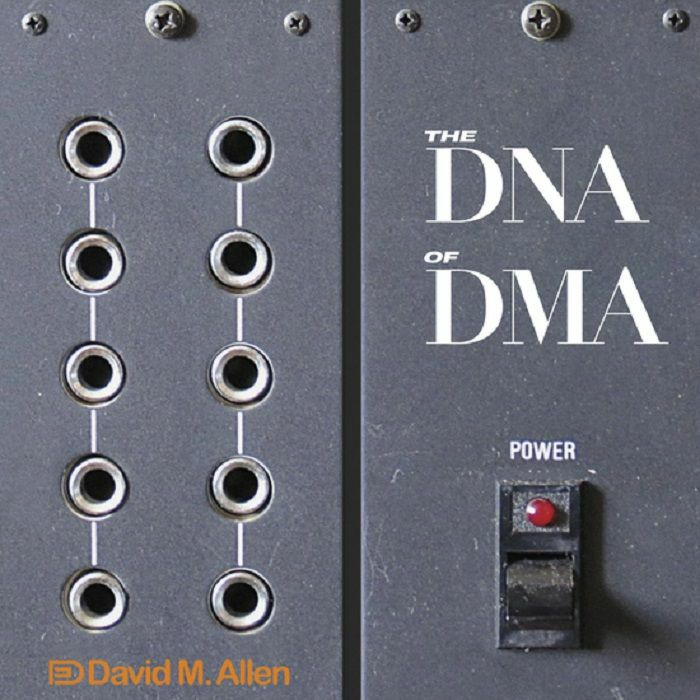
ALBUM OF THE WEEK
David M Allen – The DNA Of DMA (Themsay)
David M Allen is someone whose work you will know even if the name isn’t familiar. As a record producer he worked with The Cure from 1984 to 1992 – or from ‘The Top’ to ‘Wish’ is you measure time in album releases. Among other highlights he was at the controls for The Sisters Of Mercy’s ‘First And Last And Always’ and Neneh Cherry’s ‘Man’. He also happens to co-own Conny Plank’s legendary hand-built 1970s 56-channel mixing desk. But that’s a story for another time. Today we’re all about sowing seeds, because the nine tracks on ‘The DNA Of DMA’ – making their vinyl debut in an orderly Record Store Day fashion – laid the foundations for The Human League’s ‘Dare’.
In the late 70s, Allen was in a band called Pinpoint. Their one and only long-player, ‘Third State’, is pretty standard post punk fare, but it features two tracks that stick out somewhat. The album was produced by Martin Rushent (Buzzcocks, The Stranglers, 999, Téléphone etc) who had recently moved to the Berkshire countryside to set up Genetic Studios. He suggested Pinpoint join him there to finish off their record.
One of Genetic’s very early sessions was Visage and Rushent, fascinated with the electronics they were wrangling, decided to splash out on some new kit bagging himself a Roland MC-8 Microcomposer and Roland System 700. Arriving at the studio, Allen suggested that perhaps they could do a couple of tracks for the Pinpoint album using the new-fangled kit. Good idea said Rushent. ‘Waking Up To Morning’ and ‘Drowning In The Wave Of Life’ are gobsmacking. Full-on synthpop before full-on synthpop was a thing. Allen was thrilled, the rest of his band not so much. The tracks led to “artistic differences” and Pinpoint soon split up.
In December 1980, Rushent headed to the States on a production job. While he was away he offered Allen a couple of weeks free demo time at Genetic. When Rushent heard what Allen had done, he offered him a job in the spot. All of which was pretty handy because the next band into the studio, and making use of all this new kit/new-found skills, would be The Human League.
The results of Allen’s demo time are collected on ‘The DNA Of DMA’. What’s fascinating is that you can hear where Allen/Rushent went with it all. The Genetic sound is so familiar it’s hard to take in that these nine tracks formed the basis for everything that followed. There are so many recognisable moments. A twirl, a beat, a fade, an echo, a sequence – you can hear ‘Dare’ taking shape before it had even arrived in Berkshire.
The drum rolls galore on ‘Just A Combination’ are like Allen is working his way towards ‘Sound Of The Crowd’. And when you hear ‘The Dice Are Loaded’ it could be a Human League demo such is the striking similarity of the vocal. It has a ‘Being Boiled’ feel and could have easily been an early League track. They also get stuck into some remixing, turning Pinpoint’s ‘Drowning In The Wave Of Life’ into ‘Drowning On The Wave Of Dublife’. It’s a trick that would become something of a Genetic trademark (don’t get me started on Martin Rushent remixes, we’ll be here all night).
At the same time as making ‘Dare’, Genetic was also host to Pete Shelley who was working up demos for a new Buzzcocks album. Recorded using exactly the same kit, the songs eventually became his debut solo album, ‘Homosapien’. You can hear as much of Shelley in ‘The DNA Of DMA’ as you can of The Human League. The intro for ‘The Sound Of Muzak’ totally lays the foundations for ‘I Don’t Know What It Is’. While ‘It Is Nowhere’ is an instrumental pop belter of such quality it could’ve come straight off ‘Homosapien’. Weirdly, when you consider all this was happening late 1980, ‘All Or Nothing’, ‘You And I’ and ‘Lost Horizons’ come on like an incredibly upbeat Soft Cell. Allen’s vocal naturally seems to sit in the Marc Almond ballpark. The kit he was using by far outstripped anything Dave Ball would have had at the time.
Listening to all this, you wonder why David M Allen wasn’t launched as a pop star in his own right. Not that he hasn’t carved his own ridiculously successful path since, but you know, things could’ve been very different.
NM
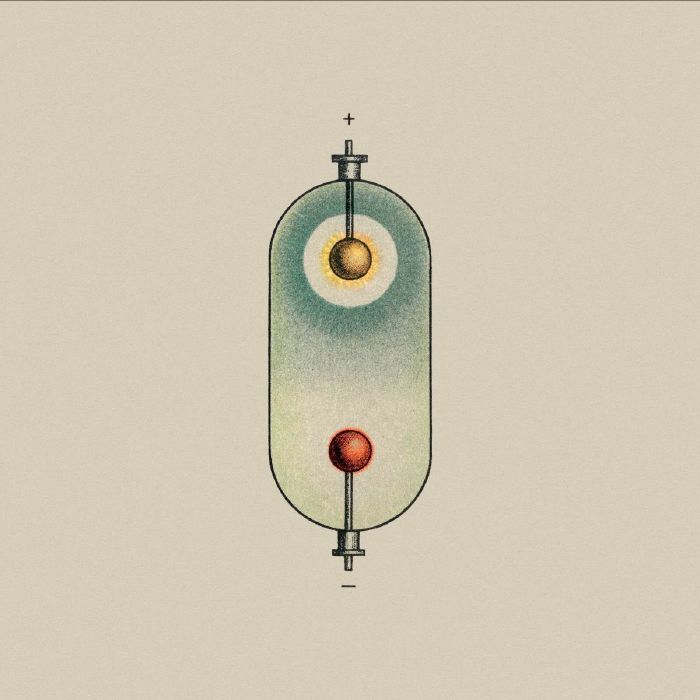
O Yuki Conjugate – A Tension Of Opposites (World Of Echo)
O Yuki Conjugate have experienced one of the strangest transitions out of UK post-punk any band could have wished for. It’s been 30 years since they formed, their style naturally coming a long way; the lo-fi, thumb-piano infused dance album ‘Scene In Mirage’ sounds nothing like their post-2010 sound, which, in the space of four albums, has seemingly completely abandoned any semblance of industrial dance for a completely ambient, ‘fourth world’-view.
Despite the sonic transition, ‘A Tension Of Opposites’ sees the band return to their originally preferred release format – cassette – making themselves at home with London connoisseurs World Of Echo. Split into two master ‘opposites’ – ‘At Variance’ and ‘Into The Pleasure Garden’ – we hear a meditation on twinned worlds. The first, 40-minute exercise, handled by Roger Horberry, concerns isolation, disease, lonesomeness, and despair (having been produced in 2020’s “virus state). The second, by Andrew Hulme, is ecstatic, being a representation of the light at the end of said pestilent tunnel.
“Apocalyptic” is the first word that springs to our minds on hearing the first 11 tracks (part 1). ‘Retrograde’ is positively sprawling and ambient, but something sinister undercuts its string-tugs and twinklings: a deep, cellic melancholia. Similarly, the harp flourishes on ‘Crosswise’ seem to stop time, recalling the blurred days and sadly heatstricken gazes of summer 2020, despite the emotions that pervaded.
JIJ

Civilistjävel! – Järnnätter (FELT)
Quickly following up a much welcome repress of the 4-5 LP, aloof Swedish electronic entity Civilistjävel! makes a more pointed move towards tangibility with this album on a new label FERN. One presumes it’s their own. Although information is scant and they came to light through the murky waters of Low Company Distribution, it seems that the project is rooted in Sweden and involves archive digs of an artist (or artists) who previously only issued their work privately. The Scandi connection holds true – in the frosty melancholia and subtle dubbiness of the music you can spy a sonic link to labels like Northern Electronics and Thule. Not quite noirish, it’s more of a blue-hued mood which evokes those Arctic-bordering frontiers.
The grainy hiss of the prior Civilistjävel! releases isn’t present here, which suggests this might be more contemporary music we’re listening to. Long form piece ‘A2’ gleams with a high-end production, allowing a system of interwoven synth tones to form a helix around each other with enough gentle movement to avoid sounding static. Could it be modular? Quite possibly, but either way it’s typical of a beatless techno approach, punctuated with rhythm and committed to shaping out a nuanced sound world.
Overall, the approach across Järnnätter is fluid, stopping by more experimental tonal passages, barely-there dub techno abstraction and outright ambient. There’s a conviction in the approach which hints to the supposed history of the project, but it’s also very contemporary. The nuanced detail and sound design in the percussive elements on ‘B2’ are refined and ear-catching, but equally remarkable is the approach to bass. Where so often bass is treated with a tight leash for maximum rhythmic impact, here it flows like molten lava across the lower reaches of the frequency range, gnarled peaks of distortion rising up to disrupt the relatively sparse tundra. It’s certainly not a case of ambient techno by numbers, and by the end, you’re left with more questions about this curious project than answers. In times of great exposition, that only adds to the appeal for music such as this.
OW
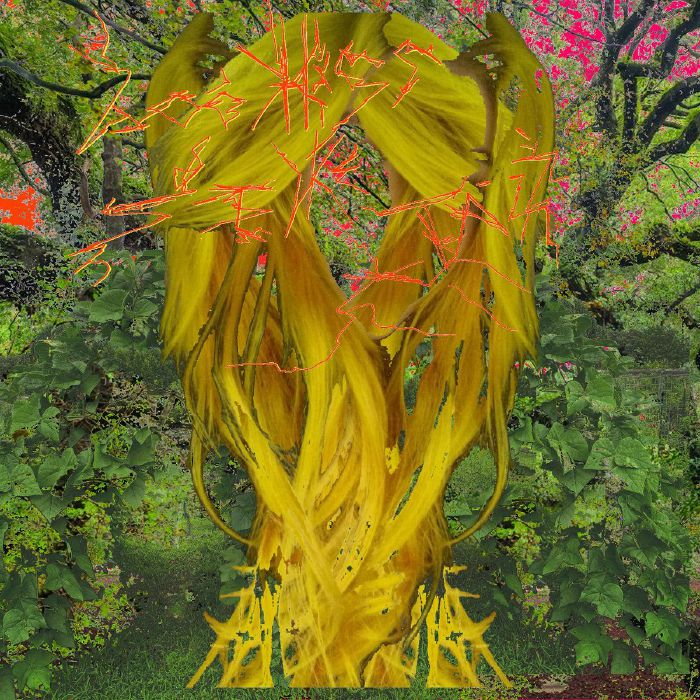
Boo Hiss – Sike Jaz (Deathbomb Arc)
Todd Drooten is best known for his longtime ‘beat-punk’ alias Books On Tape, an ullulator of folktronica against a backdrop of raw, sampledelic pop and punk. Nowadays, he’s lesser (yet no less importantly) known as Boo Hiss. Two albums under the name have reared their heads. First came ‘Sike Roc’, which established the alias as a means for Drooten to explore music-making outside of his normal methods. Now in 2022 comes ‘Sike Jaz’, which expands (and subsequently boggles) the mind even further, with a more spiritual-free jazz plate of ambient sonics.
Despite Drooten’s background in the analog-gear centric punk and rock scenes, this is a much crisper affair, intended as one for “true explorers of digital realms.” Opener ‘200,000’ hints at Drooten’s ethos; a snippet of spoken dialogue, run through psychedelic echo, welcomes us formally to a “jazz appreciation” class: “I look forward to sharing the art form of jazz with you”. A rattling, electronic wash of pitched-up sound ensues, sounding rather like a Pharoah Sanders-esque instrumental bed – it’s got drone, sax, xylophonic twinkles – but put in reverse.
It soon becomes clear that Drooten’s focus on jazz – both an extremely formalistic yet ‘loose’, improvised art form – nods to his intention: to fight instinct while making music. To overcome bias. To go with the flow, while still having achieved mastery through intentional hard graft. With that, ‘Tune Fussin’ fusses over expressionist sax movements and more twinkly ambiences, while ‘Art Nemesis’ continues the charge, ascending and descending to a streetwise dockyard of scraping, industrial ambi-jazz.
Our narrator returns for ‘Calculator Jazz’, carefully upping the stakes to a glitching, tactile jazz-jungle safari of canopied white noise, impossible blurbles and chirrups, and devised animal noises. The LP grows more ‘organic’ as it progresses, moving out of the on-the-nose and into the synaptic, the surreal. ‘Uprising Tides’ is our closer of choice: blending beachside guitar with an all the more bittersweetly triumphant soundscape.
JIJ
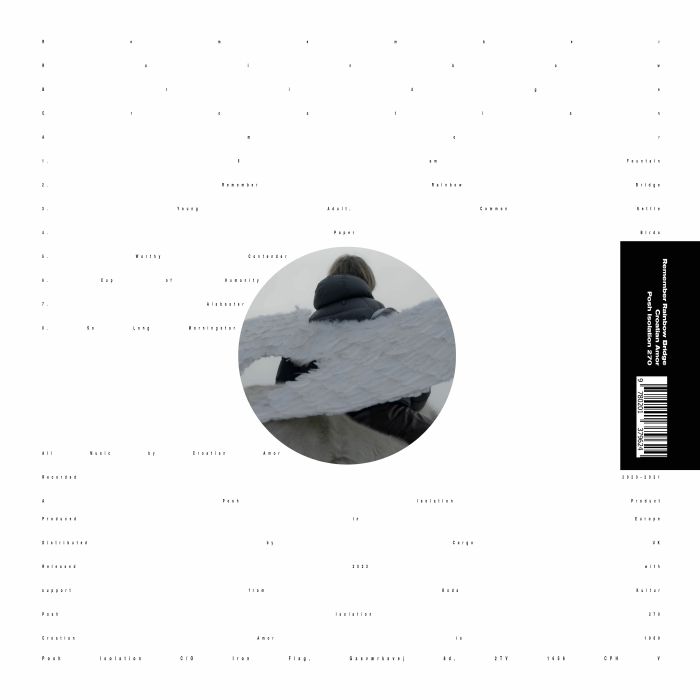
Croatian Amor – Remember Rainbow Bridge (Posh Isolation)
As label owner of the seminal Copenhagen indie Posh Isolation, Croatian Amor’s own music can often feel enigmatic, hidden behind the talents of his labelmates and contemporaries, or not least lended to other acts on the label like Frederik Valentin.
But now, it’s time for the main man to shine. The album cover for ‘Remember Rainbow Bridge’ features a winged demiurge atop a white horse, and from this in combination with the music he’s just put out, we can glean all sorts. First, we immediately know Mr. Amor (Loke Rahbek) is trying to make a statement about innocence. Purity abounds on this album. With liner notes crying it as a “homage to youth”, a “tender flux” and an album “infused with the restless energy of adolescence”, we agree with its intended sentiment. However, we also believe there’s a much deeper sophistication to Rahbek’s music that permeates across its trancelike, emotive character, touching on something strangely edgy and frightening in its arps, pads and textures.
In other words, this isn’t your bog-standard ethereal future garage Kiasmos bollocks. It’s not forced, “haunting” emotion. ‘Remember Rainbow Bridge’ is much realer than that. It has plodding, moving beatscapes, but they’re also embedded in the fearfully sublime drama of landscape and natural beauty. It’s like one big traumatically beautiful kids’ playfight, fought in the Danish countryside. From the vocal (or perhaps synth) stabs permeating across the ambiences of ‘5:00AM Fountain’ to the strange transitional FX and noise bursts bookending the end phrases of tracks like ‘Alabaster’ and ‘Paper Birds’, this is an album fastened out of both found sound and synthesized fantasies. It’s the expression of tainted awe, not whitewashed ecstasy.
JIJ
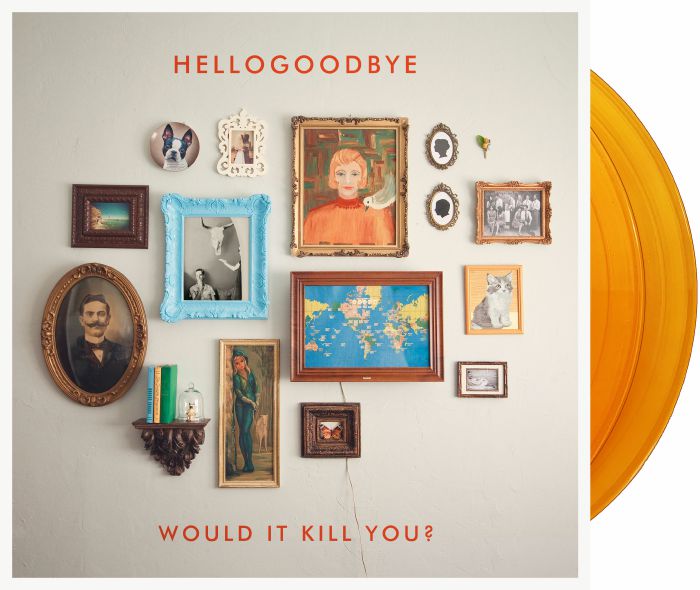
Hellogoodbye – Would It Kill You? (Wasted Summer)
Before Hellogoodbye would become known as the genre-hopping one man band orchestrated by Forrest Kline, they would wind up equally praised and maligned for their sugary brand of emo-tinged synthpop, with ‘Here (In Your Arms)’ still regarded as a modern outlier pop classic (in certain circles, at least).
In an effort to break away from misconception, 2011’s ‘Would It Kill You?’ eschewed all electronics and “synthetic” composition in order to pursue more analog, folk-inflected arrangements.
From the anthemic baroque chamber pop opener, ‘Finding Something To Do’, to the brass-heavy boogie of ‘Getting Old’, this creative rebirth perplexed and enthralled in equal measure upon its initial release.
While subsequent projects have highlighted the genre-less space which Hellogoodbye continues to reside in, this 2xLP reissue offers an ideal opportunity to revisit their sophomore curveball; arguably the most dynamic and charming work Kline has put his name on, to date.
Think Vampire Weekend, only a little less Paul Simon and a bit more Rivers Cuomo.
ZB
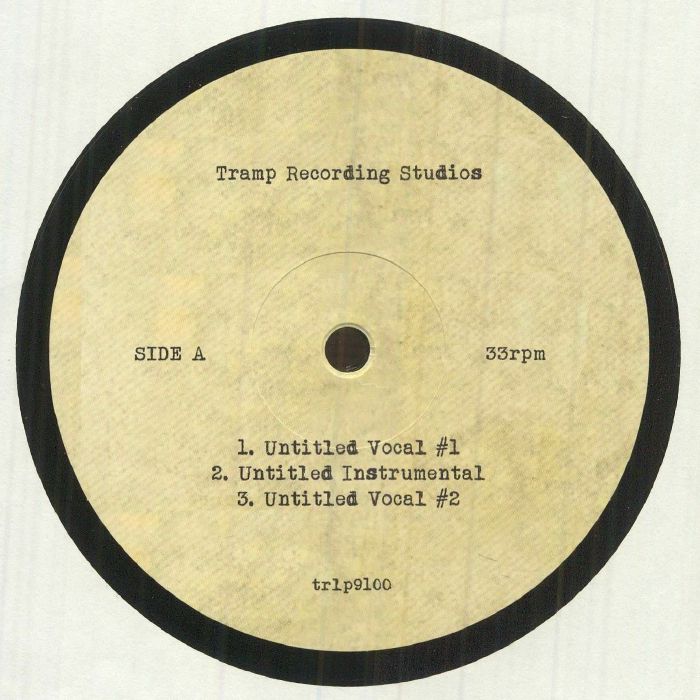
Various Artists – TRLP 9100RE (Tramp)
Tramp Records are today’s most unique purveyors of “spiritual jazz-funk”, focusing on rare soul, funk and jazz reissues, alongside new revival bits. This new 10” LP is their most mysterious release yet, claiming to exist as a ‘100th Anniversary’ edition despite the label only having been about for around 2 decades. True to the sense of enigma that arises from this confusion, this one’s released as an odd run of 505 copies, and every track found on the project (1-7) is untitled and uncredited, leaving our heads duly scratched as to the origin or maker(s) of each bit.
That’s not to say any of them aren’t infectious bangers, though; they’re sure to warm up floors and thaw the meek out from their icy shells. Wonky rimshot, castanet, and trilling flute all loosen up the first piece, as a femme narrator urges us “to break the chain from your brain and think! break the chain from your body and feel! break the chain from your spirit and sing! break the chain from your soul and be!” Breaking the mold from funk’s common interpretation as simple carnal body music, this narrative clearly establishes a mood of mind-body unity, not denying any aspect of ourselves.
Only track 2 is an instrumental, continuing to rattlesnake and shake away into a tribal, glimmering, divined fire of joy. From there, we get every variation on jazz-funk there is to offer, from ¾ blues (track 3, which we might as well dub ‘Black History’, given its lyrical theme), while the black power theme continues thereafter on the saxy afro-soul bits that are track 4 and 5. The latter in particular gets wonderfully spiritual, with our unnamed vocalist urging us to “sow seeds” and “dig up the soul” while pendulum-swinging between slammy spoken word and improvised crooning. Oh, and each pressing of this one comes in a different sleeve with different stickers, so make sure you get your mitts on at least one.
JIJ
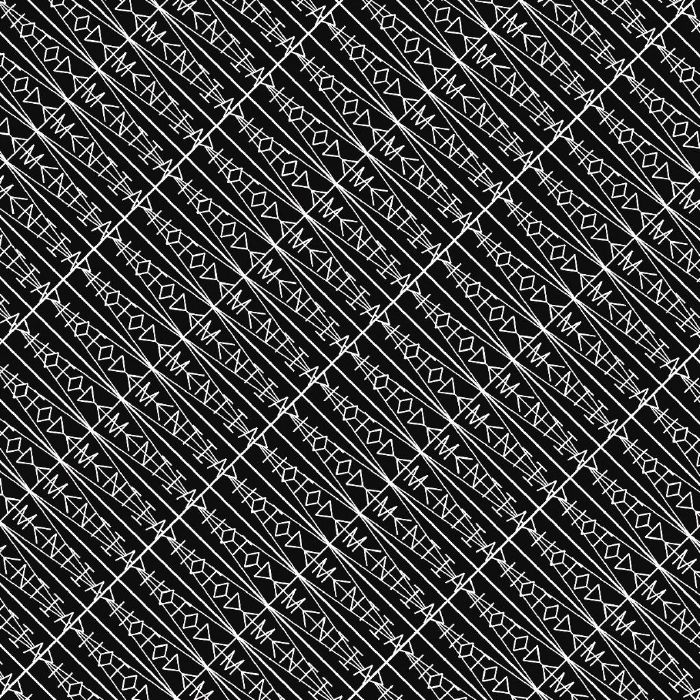
Otherwise spotted on Rephlex and the like recording as Monolith, David Barnard’s Photodementia project was quite a cult classic for braindance devotees back around 2011-2013. Compared to the fluttering melodics and crunchy broken beats found on Monolith albums like Welcome, the Photodementia sound was tooled towards linear rhythmic patterns split between electro and techno. Now the project makes an unexpected return in the wake of WeMe’s reissue of Welcome, presenting a frankly staggering strain of machine gear that delivers the kind of techno you’ve always dreamt of.
There are undeniable parallels between the Monolith and Photodementia sounds, most notably in the kinds of synth voices used, but it feels more appropriate to consider this in the context of classic techno rather than braindance. There’s a bias towards spooked out atmospheres such as the lingering bell tones on ‘arrange7’ which create a dystopian mood not a million miles from early Dopplereffekt, but it’s the rhythm section which does the heavy lifting on most tracks. There’s plenty of melody, but it’s used with care so as to not upset the icy demeanour which is inherent in the Photodementia sound. As such, we’re left with an album of exemplary techno which sounds more than ready to be worked in the mix, even if it’s got more than enough personality to be enjoyed outside of the club.
OW
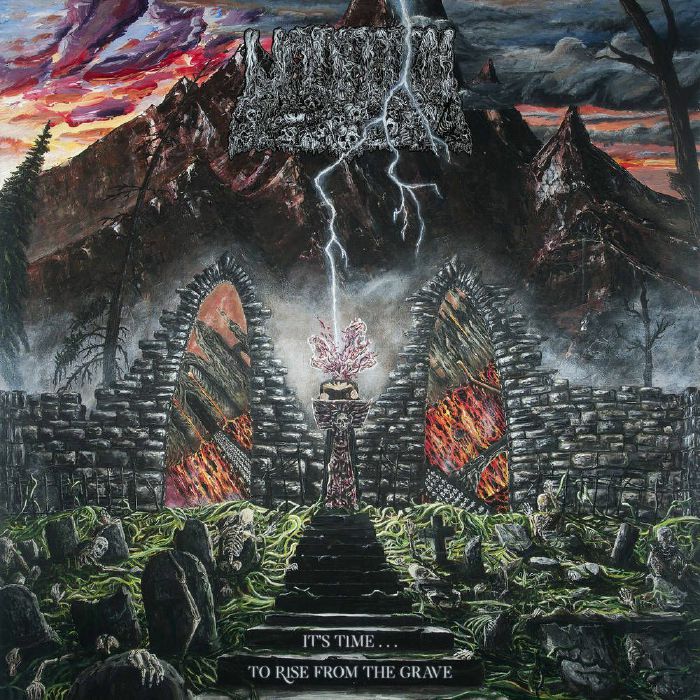
Undeath – It’s Time… To Rise From The Grave (Prosthetic)
On their visceral 2020 debut full-length, ‘Lesions Of A Different Kind’, New York based death metal revivalists Undeath sparked intrigue with their back to basics approach.
That isn’t to discredit the band’s compositional chops, but in a genre that prioritises innovation and experimentation above all else, it was somewhat refreshing to hear focus be recast upon the initial elements – chunky, groove-laden riffs, pummelling percussion and squelchy, unintelligible vocals with lyrics dealing with golden era topics such as zombies, cannibalism, murder, sacrifice, the occult etc.
The project left such an impression that metal hounds have been eagerly awaiting a follow up, and if the title, ‘It’s Time… To Rise From The Grave’, isn’t enough of an indication, this sophomore effort showcases a doubling down, ramping up, adrenaline shot to the heart of their formula.
Take the Cannibal Corpse indebted, ‘Necrobionics’, featuring vocalist Alexander Jones doing his best (early day) Chris Barnes impression, or the thunderous, violent rampage of latest single, ‘Defiled Again’, and it’s becoming increasingly clear to understand why Undeath are everyone’s new favourite death metal band.
An urgent, palpable, nostalgic yet stark reminder that purposeful simplification can equal malevolent exhilaration when in grim hands.
ZB
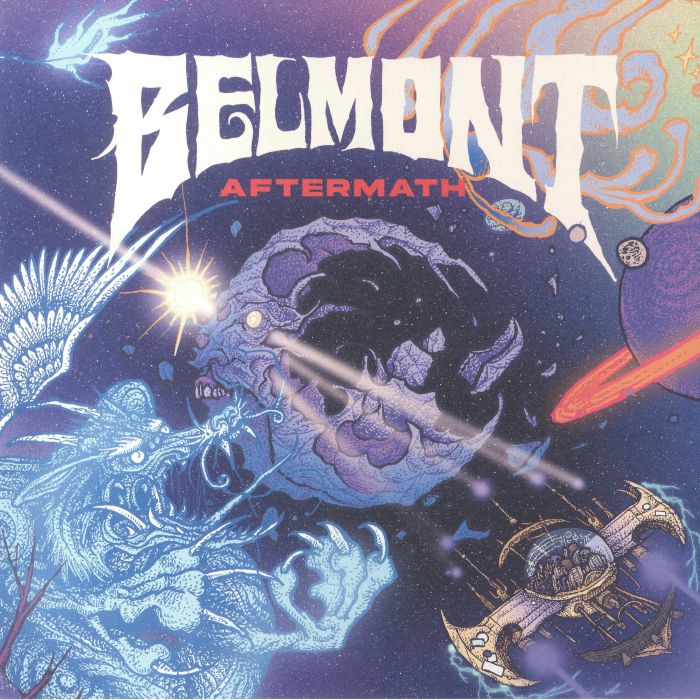
Belmont – Aftermath (Pure Noise)
Chicago based math-oriented pop-punks, Belmont, have maintained a consistent approach to their unique stylings since the release of their acclaimed ‘Between You & Me’ EP, back in 2016.
Taking the angst, energy and unabashed catchiness of pop-punk and melodic hardcore, but increasing the technical nuances tenfold to invoke math-rock acts such as American Football or even the tech-metal grooves of Periphery, has led the group to cementing their place in today’s emo/punk spectrum.
On their long-awaited follow-up to 2018’s self-titled debut full-length, the band react to the departure of two members with some of their most dynamic, intriguing and challenging material yet.
‘Aftermath’, exudes all of the easycore charm of previous efforts, but with newfound willingness to delve even further into motifs and ideas only slightly pondered in the past.
The alternative hip-hop embellishments have now become a genuine compositional attribute with cuts like ‘Guilt Trip’ and the atmospheric, glitchy jolt of ‘Pain Now’ featuring watery electronics and programming as well as far more rap-centric vocal delivery from frontman Taz Johnson.
With contrast varying from the tongue firmly in cheek emo-country twang of ‘Country Girl’ to the unsettling, brooding ‘Parasitic’, Belmont manage to have their cake and eat it too, by maintaining the essential core aspects of their sound, while allowing their tangential flirtings to become more intrinsic to their craft and approach.
ZB
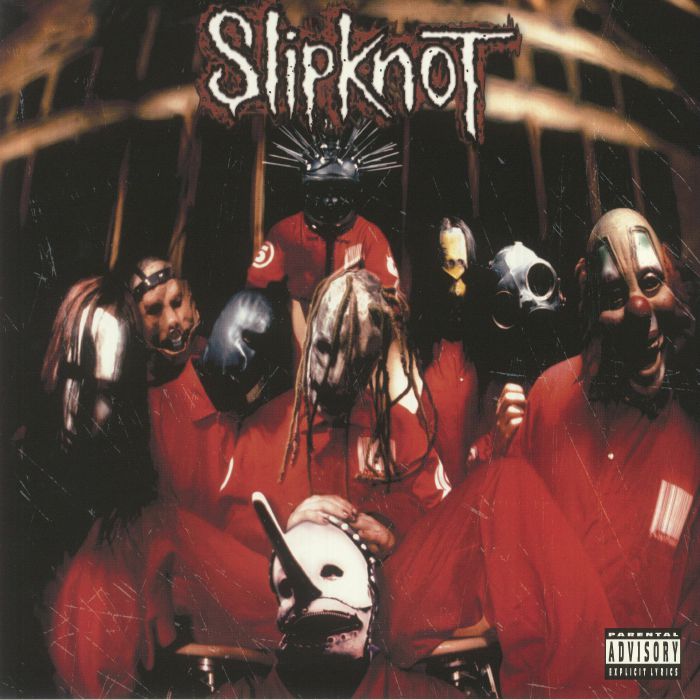
Slipknot – Slipknot (Roadrunner)
The nu-metal scene of the late nineties/early noughties arguably birthed no act as vital or incomparable as the masked, nine-member Iowa collective known as Slipknot.
This highly influential self-titled full-length debut marked the first studio appearance of now iconic vocalist/frontman, Corey Taylor, whose unkempt aggression and visceral performance would help chart a course for a group destined for exposure and acclaim far beyond their murky compositions.
With buzzsaw riffs, claustrophobic percussive assaults and Taylor’s vitriolic pennings, tracks such as ‘(Sic)’, and ‘Eye Less’ have maintained their integral ferocity decades on while the rap-metal frenetics of ‘Spit It Out’ and melodious lead single ‘Wait & Bleed’ have remained the high water mark for all chasms of mainstream metal to this day.
Out of print and resold at extortionate prices for years, this reissue is an essential piece of the puzzle for any fan of the nine or collector of genre staples. Don’t sleep on this rare chance to lock down a twisted classic.
ZB
This week’s reviewers: Zach Buggy, Neil Mason, Oli Warwick, Jude Iago James.